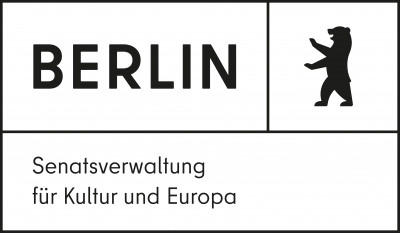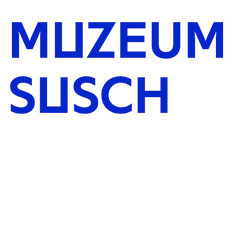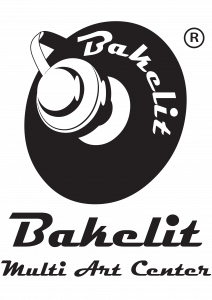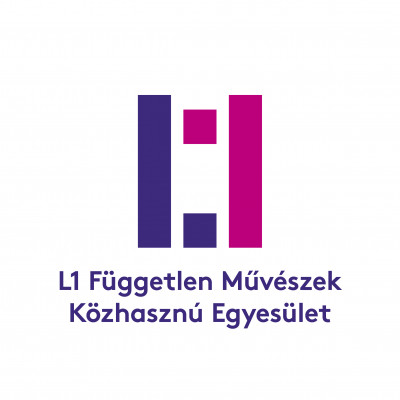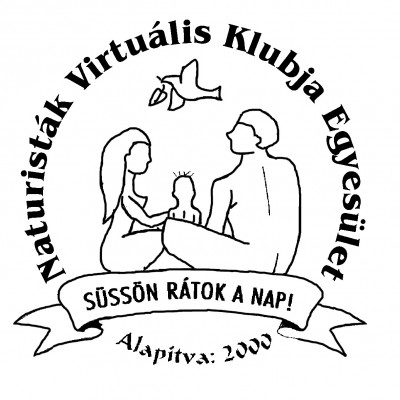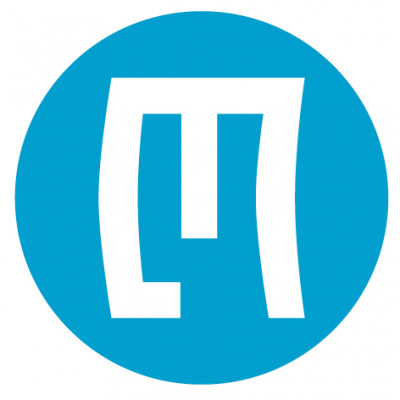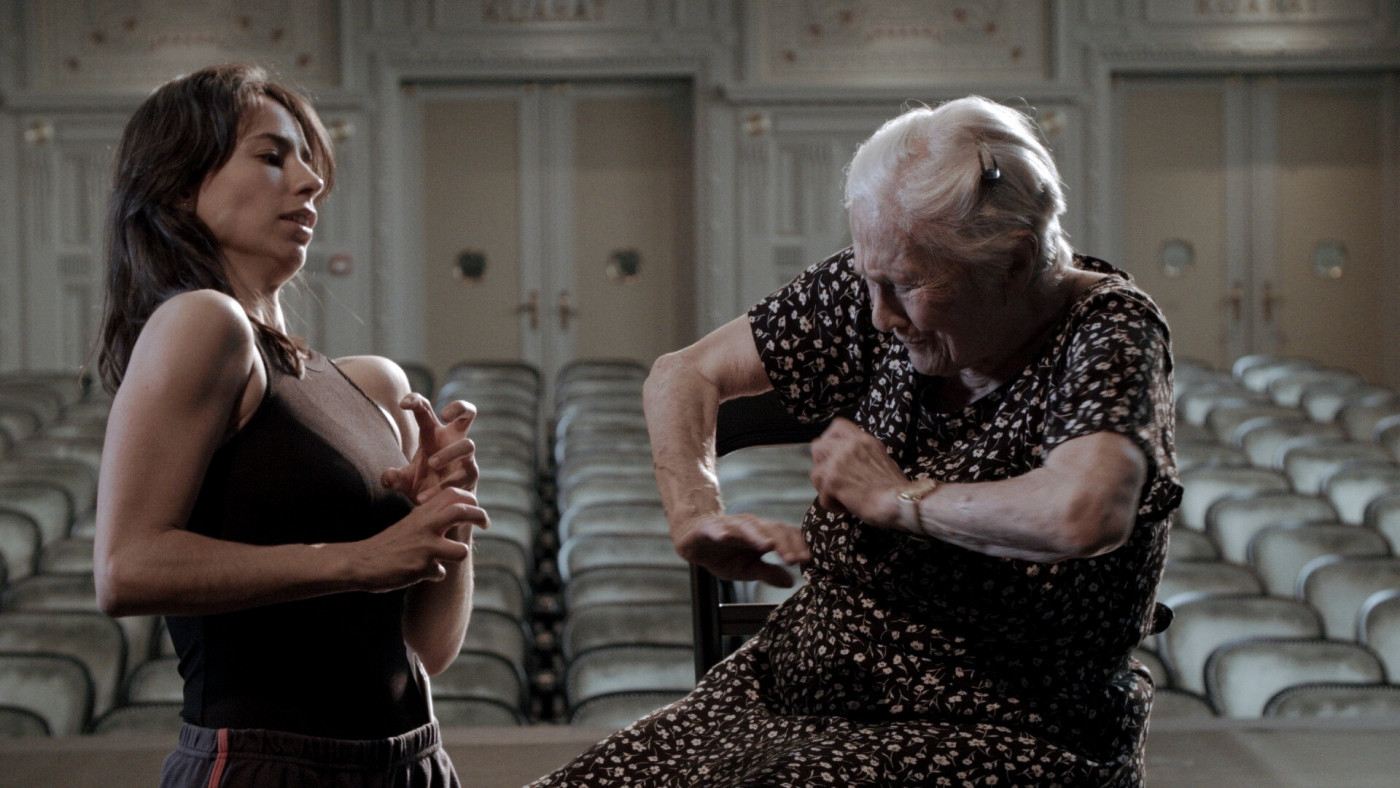
UNPOLISHED was established in 2016 as a performance festival created by a group of Berlin-based-Polish-origin artists. It first went international (2017) and then planned also to go off limits (2020) but instead of such a leap, it hung in the air frozen as the whole world stopped. Since then, the festival has been on pause.
In attempts to bring the festival back from a forced suspension, what seemed more and more to bite us was as a POLISH in title itself. Once a funky game of word, in times of raising nationalism and after more than two years of pandemic, it felt as if belonging to, and complying with the old models of presenting artists of a country, one we so craved to leave behind entering the post-pandemic world.
Thus with this edition of UNPOLISHED that was conceived in dialogue of Joanna Leśnierowska and Peter Pleyer, we propose another opening of perspective. Let’s erase national, also from the inter-national calling for inter – or even trans-locality. Let’s not make Polish the only reference point of UNPOLISHED rather, let’s bring closer several Eastern Europe localities and look beyond them into what unites us in a shared experience and what have been and still are the strategies applied to deal with differences. And let’s question then if the shared experience has rather a regional or universal common taste?
Within the program of this year’s UNPOLISHED that serves at the same time as coda to the project Terrestial Transit by cranky bodies a/company, we decided to share works by mature although struggling with wider recognition female artists from Budapest, Erfurt, and Warsaw. We wish to discuss both their local living and working environments as well as to question what it means to be a female artists in the places and contexts they come from. How much did it - or did not - change over decades of several political transformations and artistic generations?
If we scratch the polished layer … , what unpolished gems and surfaces do we find underneath?
UNPOLISHED is a co-production of DOCK ART, Muzeum Susch and the Art Stations Foundation CH, funded by the Senate Department for Culture and Europe.
Curated by Joanna Leśnierowska and Peter Pleyer.
PROGRAM OVERIEW
Thursday October 20, 7pm
Berlin Premiere
Uteri Migrantes
Solo by Renata Piotrowska-Auffret
TICKETS>>
/
Friday October 21, 7pm
Veitstänze
An evening with Gabriele Stötzer and Monika Branicka
TICKETS>>
additional program: October 21, 11am-2pm at DOCK 11 Saal 3
Performance workshop with Gabriele Stötzer: Movements in a closed space
more information/registration
/
Saturday October 22, 7pm
Berlin Premiere
LetMeC
A participatory nude performance by Márta Ladjánszki
TICKETS>>
Due to the artistic concept, all audience members are requested to be naked for the entire duration of the performance. At the beginning of the performance, all participants will disrobe in the theatre hall. The performers and staff in the performance space will also be unclothed. Please bring a towel to sit on! Photography, filming or audio documentation is strictly prohibited. By purchasing a ticket, you agree to be completely unclothed during the performance. more information about the visit of the performance
/
Sunday October 23, 7pm
The Art Of Movement
Film and Talk with Boglárka Börcsök
TICKETS>>
/////
DETAILED PROGRAM
Thursday October 20, 7pm
Uteri Migrantes
Solo by Renata Piotrowska-Auffret
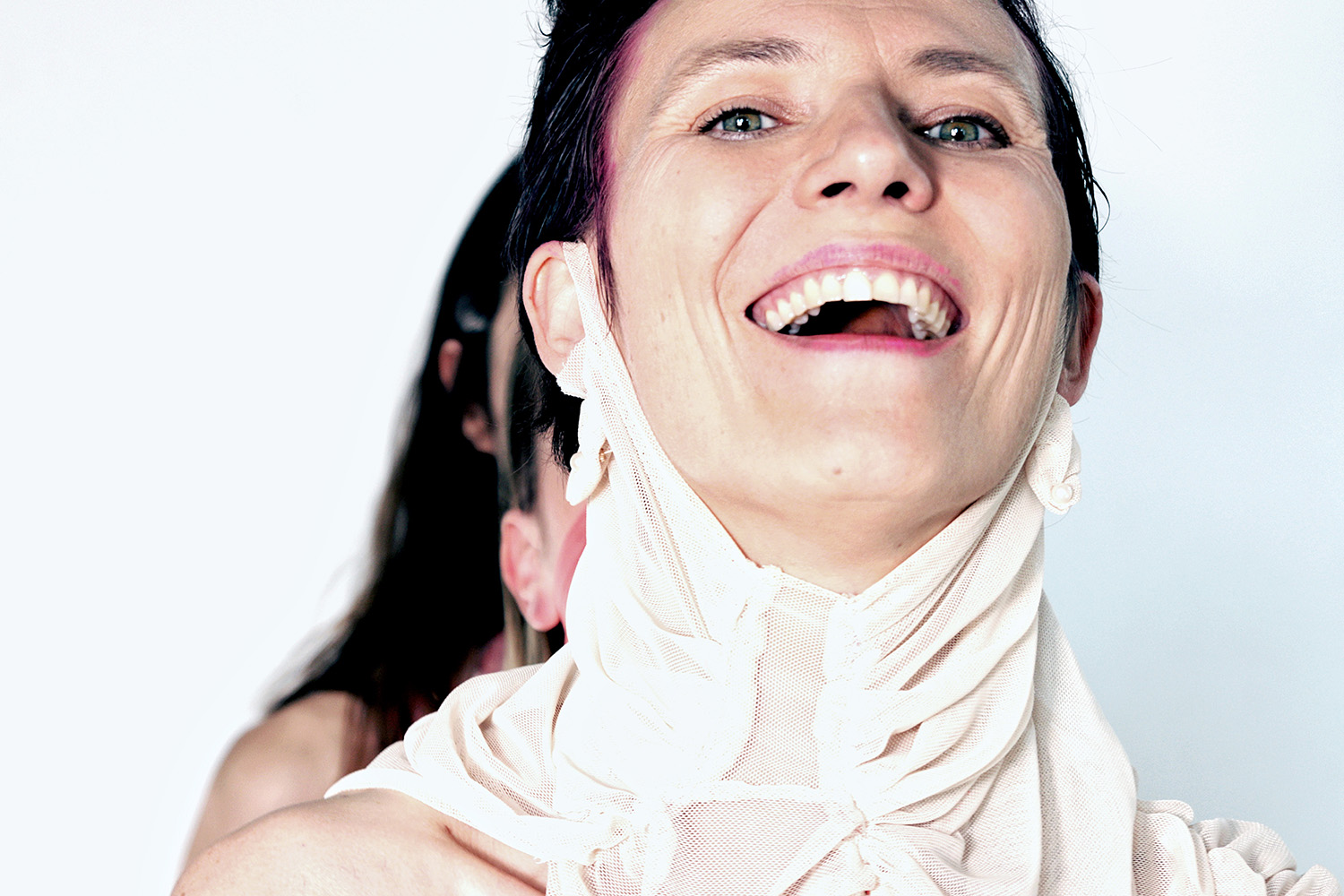
Uteri migrantes means „wandering wombs" in Latin. For centuries, the uterus was the common explanation of mostly male theories and fantasies about non-normative female behavior, such as shouting, laughing out loud, or making unusual gestures or movements. The main concept traveling through the ages has been the vision of the uterus as a living animal that causes a variety of female abnormalities (such as overturning the whites of the eyes, unnatural twisting limbs, or behaving in a way too emotional and dramatic). All the concepts that arose were aimed at controlling women - their way of life and self-expression. Which way of freeing ourselves from the historical and contemporary stigmas of wombs and female bodies resonates most in us today?
How can we rewrite history and claim the narrative that is ours?
Renata Piotrowska-Auffret's new solo is the fifth work in the PRIVATE PIECES series, which explores the political nature of the female body. This time the theme, matter and main character of the performance is the uterus, treated with distance, humor and care. The choreographer's personal desire is to look at this organ and the entire female body through the prism of aging.
Choreography / Direction / Texts: Renata Piotrowska-Auffret
Choreographic cooperation: Aleksandra Bożek-Muszyńska, Anna Charlotta Nordanstedt (ANNA & CO)
Costume, Object: Pipa Piwosz
Music: Simon Auffret
Vocal compositions: Anna Szwajgier
Lighting Design: Estelle Gautier
Video: Katarzyna Fabińska
Dramaturgical advice: Michael de Cock, Joanna Leśnierowska
Reseaerch: Natalia Miłuńska, Natalia Oniśk, Aleksandra Osowicz
Partners: Ochota Theater (Poland)
Executive producers: Karolina Wycisk / Performat Production (Poland), Météores - plateforme chorégraphique et constellation artistique (France)
Photo: Anna Błaszczyk
Duration: 60 min.
Co-production: KVS Brussels (Belgium), Dans I Trondelag (Norway), House of Utopia & Teatr Łaźnia Nowa (Poland), International Festival of Dance and Performance Body / Mind, DOCK ART, Senate Department for Culture and Europe Berlin
/
Friday October 21, 7pm
Veitstänze
An evening with Gabriele Stötzer and Monika Branicka
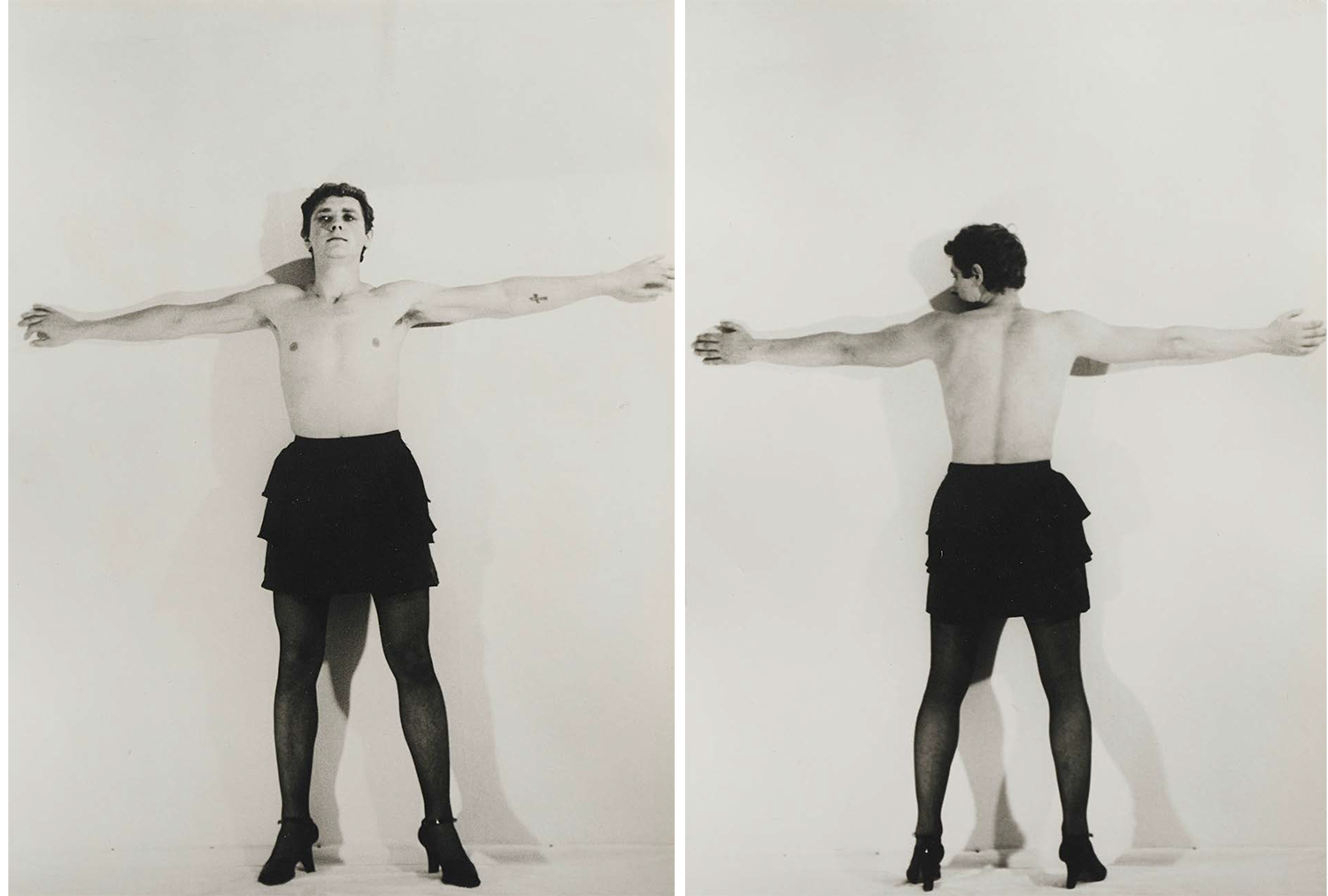
In conversation with Monika Branicka (curator), the artist and writer Gabriele Stötzer will talk about her artistic practice in the GDR and after the fall of the Berlin Wall, and in particular about the significance of the naked body in totalitarian systems: Why did a naked body have such political power and could thus be used as a means of protest? What social, cultural and symbolic role did nudity play at that time? Parallels will also be drawn with artists from other countries of the former Eastern Bloc (such as Poland).
Gabriele Stötzer will also discuss the performances of women by the Künstlerinnengruppe Erfurt. She says: "...in that all-female group we wanted to learn from each other about what it means to be a woman; there was, after all, the socialist sensually castrated woman as the property of politics; a property of the old men's politics of the SED, bristling with pettiness and stuffiness. We instead were concerned with embracing the feminine...". Afterwards, the artist will talk about how her artistic practice changed after the fall of the Berlin Wall - and the meaning of the body for her today.
As part of the evening three films will be presented: Die Geister berühren (with the Künstlerinnengruppe Erfurt, 1987, 25 min), Veitstanz/Feixtanz (1988, 25 min) and ...hab ich euch nicht glänzend amüsiert? (1989, 12 min).
/
Saturday October 22, 7pm
LetMeC
A participatory nude performance by Márta Ladjánszki and Zsolt Varga
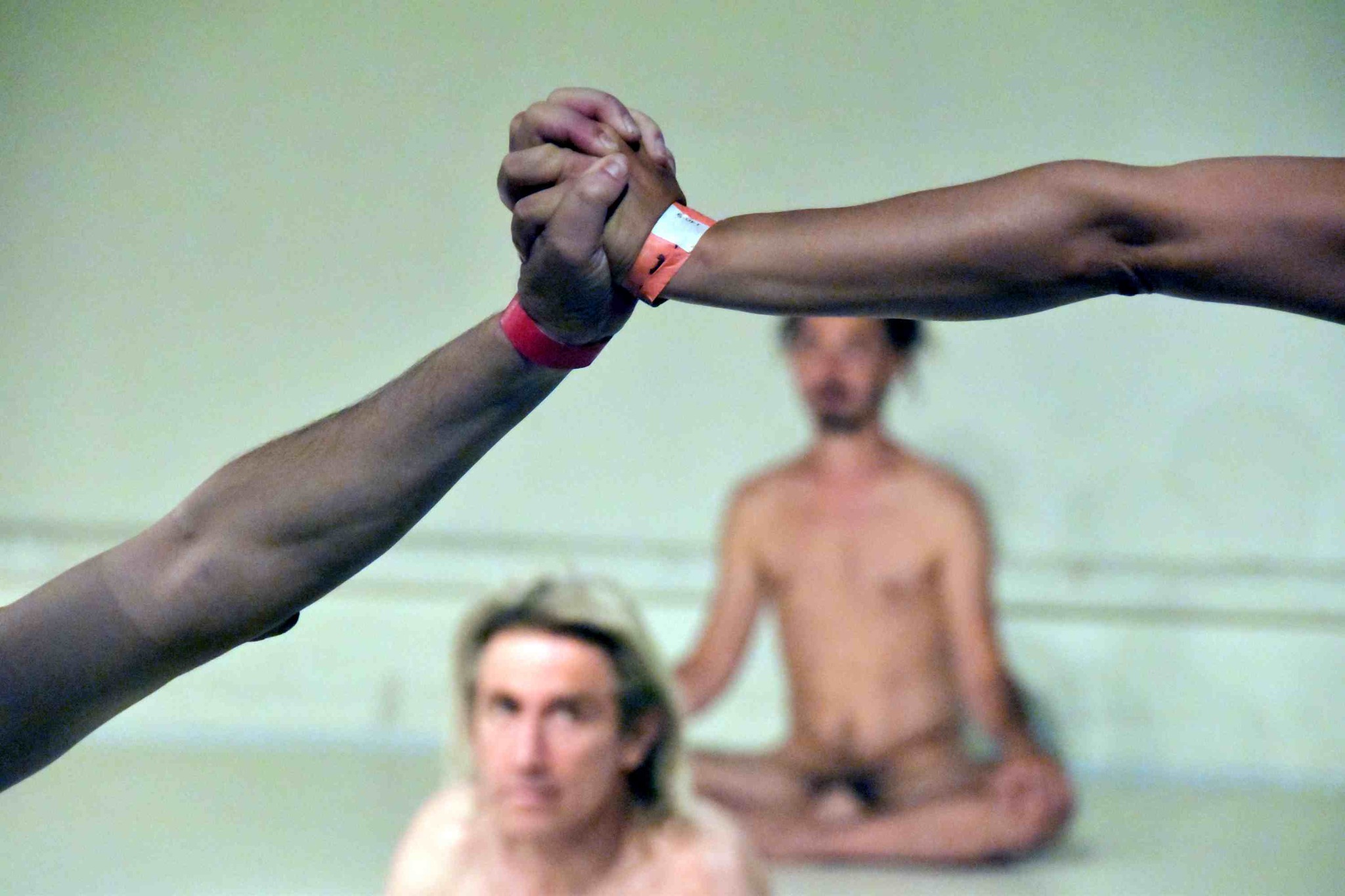
This is the naturist version of the show - the performers and audience are nude.
more information about the visit of the performance
In the times stage-nudity seems to all of us so obvious, the naked performer body became naturalized element of the contemporary art landscape and asking for reason to be naked on stage seems not to be brought up too often anymore, LetMeC performance offers new way of questioning togetherness and sensing nakedness on and off stage. What happens if not only the performers but also the audience gets naked? Answer is only available to ones who accept invitation to free themselves from clothes and watch the show naked. In direct dialogue with the space and the audience, a performance is gently weaved allowing us to experience nudity devoid of the usual reference point, and offering a strong communal encounter.
Márta Ladjánszki and Zsolt Varga take audience on unique journey fueled with a hope for arestoration of an uplifting belief: that genuine togetherness and true experience of community is still possible – in the theatre and outside - and with no doubt, that it is needed so much more than ever.
Choreography / Concept: Márta Ladjánszki
Composition / Music: Zsolt Varga
Performance: Márta Ladjánszki, Zsolt Varga
Duration: 30 min plus time for conversation with the artists
L1 Association presents: Márta Ladjánszki & Zsolt VArga (H) LetMeC_natur
Supported by L1 Association, Virtual Association of Naturists (NaVKE), Bakelit MAC
/
Sunday October 23, 7pm
The Art Of Movement
Film and Talk with Boglárka Börcsök
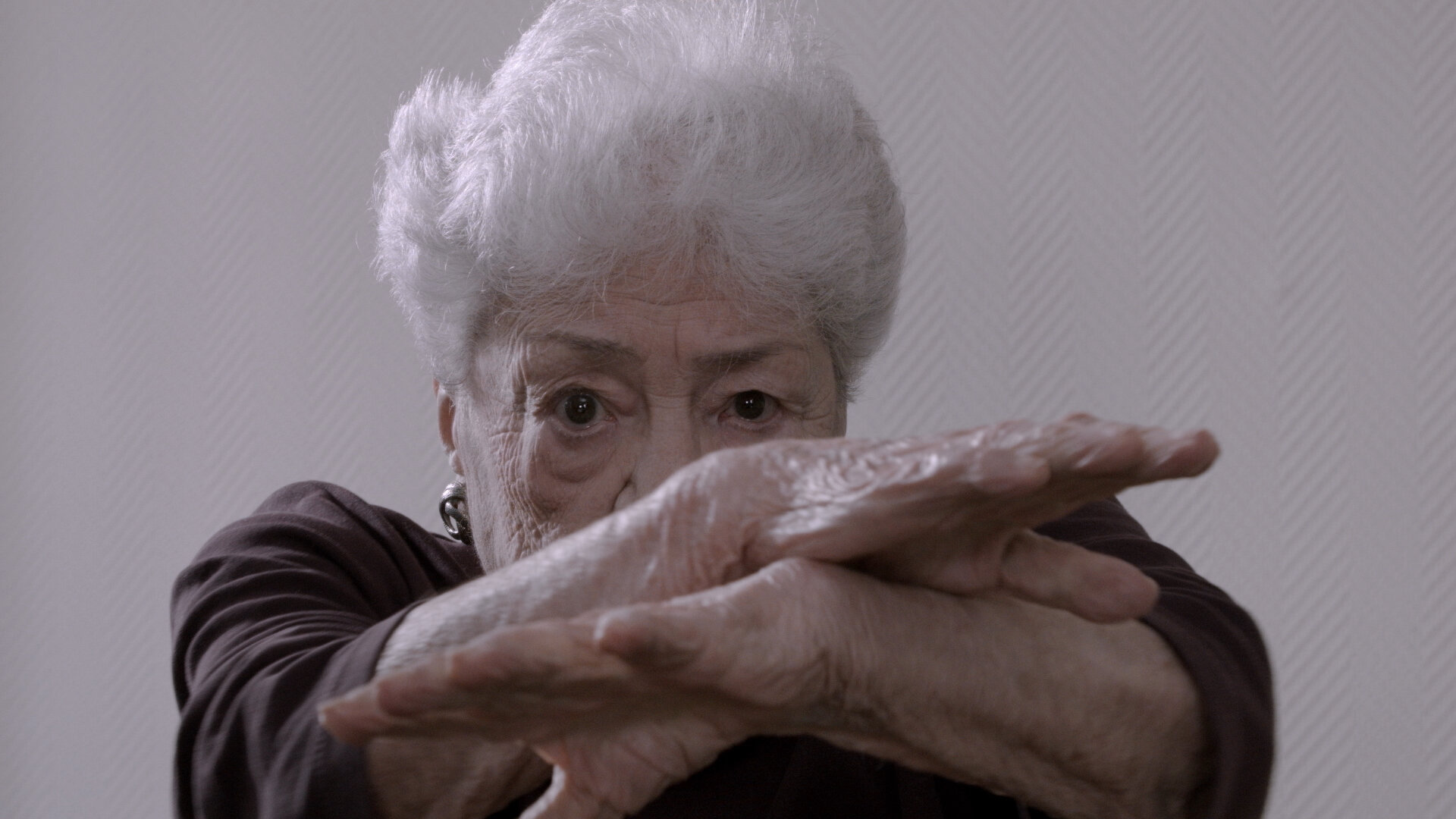
a TANZFONDS ERBE project
DE 2020, 58 min., Hungarian with English subtitles.
A sensual and insightful film about three elderly dancers from Budapest. Éva E. Kovács, Irén Preisich und Ágnes Roboz - all between 90 and 100 years old - were once part of the early modern dance movement in Hungary.
Taking the role of a dance student and dialogue partner Boglárka retraces how each of the elderly dancers transformed their lives and movement practices in order to survive the major socio-political changes of the last century.
The film takes us into a personal and bodily encounter with three very different personalities and their relation to their past and present. Returning to the stage and performing in their private rooms, Irén, Éva and Ágnes reveal us an incredible richness of experience stored in their bodies.
A choreography of memories.
Credits
Cast Éva E. Kovács, Irén Preisich, Ágnes Roboz
Written / Directed: Boglárka Börcsök
Artistic collaboration: Andreas Bolm
Editing: Andreas Bolm & Boglárka Börcsök
Cinematography: Lisa Rave
Production: Whole Wall Films, Boglárka Börcsök
Production management: Elisa Calosi
Color & Light: Andreas Bolm
Sound mixing: Jochen Jezzusek
English Translation: David Robert Evans
Funded by Tanzfonds Erbe - an initiative by German Federal Cultural Foundation, La Musée de la Danse/ Centre choréographique de Rennes et de Bretagne, Senatsverwaltung für Kultur und Europa, Berlin
Supported by Akademie Schloss Solitude & József Attila Circle within the Eastern European exchange program, Hungarian National Film Fund - Film Archive, OSzMI - Hungarian Theatre Museum and Institute, Pact Zollverein Residency Program, AQB - Art Quarter Budapest, Franz Liszt Academy of Music, Orkesztika Foundation, weltfilm
